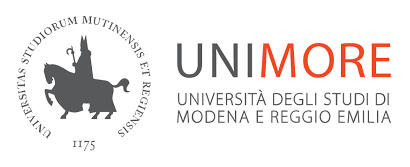TUTORIAL 1: Smart product and Smart Productions in the 4.0 Industrial revolution
Summary:
In a period of great change, such as the one outlined by the so-called fourth industrial revolution it is necessary to deepen the central role of the smart product in intelligent productions.The product with the smart door if data and information that need a detailed analysis and at the same time to increase the communication with the traditional systems of automation.
Purpose of the tutorial is to tie a thin thread through these three aspects: smart product, machine learning, and collaborative machines. All presenting a formalization of the architecture and some very interesting case studies.
The title of the lessons will be:
Smart Products: An enabler of Industry 4.0
Smart Products are among us and they constitute the basic enablers of the ongoing 4.0 revolution, within and outside industrial contexts. But for being effective, they should be properly modeled, designed and defined. This presentation (30 minutes) aims to introduce the concept of Smart Product, the need of the relative design and importance of a proper business model definition. The presentation will be also based on several empirical evidences, in particular from the Italian context.
Machine Learning and Information Processing in Industry 4.0: Challenges and cases of study
In the last 20 years ICT (Information Communication Technologies) became more and more pervasive in our life. Similarly in industrial systems, new technologies, wireless communication protocols and data mining techniques play a key role both as enablers for new production and business processes and contributing as actual component of products’ value chain.In this context classical and novel Machine Learning and Computational Intelligence (CI) techniques, among which Artificial Neural Networks (ANN), which have been developed exactly to extract (hidden) information from data for pattern recognition, classification and prediction issues, find a natural field of application. Such techniques have a huge potential to provide a clear improvement of many transformation processes, as well as to services such as logistic, personnel training and marketing. New technological directions will be outlined in open and new projects for designing smart, sustainable and robust manufacturing systems in the factory of the future.
Automation 4.0: New trends and case study
Intelligent machines require a new way of thinking about automation architectures. It prompted increasing cooperation and this implies the use of reconfigurable and distributed software.Fieldbuses and integration with the cloud will bring significant benefits in this new way of thinking about automation. In this tutorial we will discuss the major architectures applied to significant case studies. The outlined landscape will be useful to understand in a deeper way the potential of the architecture 4.0.
Speaker:
Sergio Terzi, Maurizio Fiasché, Giambattista Gruosso, Politecnico di Milano (Italy).
Biography:
Sergio Terzi
Sergio Terzi is associate professor at Politecnico di Milano, Department of Management, Economics and Industrial Engineering. He is co-director of the national observatory on Industry 4.0. Author of more than 120 publications, he is member of the scientific committees of several conferences active in the field of technology management and engineering. He is member of the IEEE TMS.
Maurizio Fiasché
Maurizio Fiasché is research associate fellow at DEIB (the Department of Electronics, Informatics and Bioengineering) of Politecnico di Milano (POLIMI). He received a Ph.D. in Computer Engineering in 2010 and a M.Sc. in Electronical Engineering with magna cum laude in 2006 at University of Reggio Calabria, Italy. Member of INNS and Senior Member of IEEE in: Computational Intelligence, EMB, Signal Processing and Computer societies, He was involved in three IEEE WGs as member for his expertise: IEEE P23026™ Standard for Systems and software engineering – Engineering and management of websites for systems, software, and services information, already become a ISO/IEC/IEEE Standard in 2014, IEEE P1760™ Standard for Information Technology Service Measures and Service Level Agreements, and IEEE P2145-1™ : Standard for Smart Transducer Interface for Sensors and Actuators - Common Network Services. He won a best presentation poster award during ICONIP 2008 conference in Auckland, NZ. He has been author of 50 papers in international journals and conference proceedings, in Technical Program committee in more 100 International Conferences, and referee for top international Journal also including Elsevier Neural Networks, Neural Computing and IEEE Transactions, He is also in the editorial Board for some Journal like the World Journal of Methodology. He has been involved as Senior Researcher in Social&Smart EU FP7 (FIRE Project) with University of Milan, in white’R FP7 Project, in Man – Made and FITMAN FP7 Projects and in Touchplant Project of Regione Lombardia with Politecnico di Milano. Moreover he has been lecture for several Universities and Institutes in Electrotechnical, Statistical Inference, Computer Science and Signal Processing courses. He is also senior consultant as ICT Project Manager and Software Engineer for several national and multinational Companies since 15 years.
Gianbattista Gruosso
Giambattista Gruosso is Associate professor at Politecnico di Milano. His current research interest are in design and modelling of electrical system for land and air electrical transport systems, with particular attention to powertrain, electrical charging and power management on board.
In recent years he was involved in automation architectures to industry 4.0 with particular attention to modeling and automatic code generation.
And 'the holder of several research projects in this area, in collaboration with companies and institutions.
He was involved in FP7 project Hiper (High power electric propulsion: A roadmap for the future) as research member. He is member of IES Transportation electrification Technical committee, Secretary of ASIEP- AESS panel on aircraft electrification, member of VTS , IES, IAS and IEEE Italy section Secretary.


